Part 2 : Top 10 fixes for common PC Problems
Part 2 : Top 10 fixes for common PC Problems
By Jeandre de Beer / Pc World
This is part 2 of our blog regarding the top 10 fixes for common pc problems.
In the first blog we discussed the following fixes : Attack of the BlueScreen of Death, Recover deleted files, Back up your data files, Protect your privacy while browsing and Speed up a slow PC without buying new hardware.
In this blog we will discuss : One antivirus program is better than two, Securely wipe sensitive files—or your entire hard drive, A slow Internet connection when you’re paying for a fast one, Archive files so they’ll stay around for years and You do need to share your passwords.
1. One antivirus program is better than two
PROBLEM: Running two antivirus programs is a bit like mixing a fine, vintage Cabernet with breakfast cereal. Each is good in its own right, but the combination may have unpleasant side effects
FIX: Before I explain why, let’s get some definitions out of the way. The term antivirus has come to mean a program that launches when you boot your PC and stays running in memory, protecting you in real time not just from viruses, but trojans, rootkits, and all other forms of malware.
Two antivirus programs, loaded and running simultaneously, will be, at the very least, redundant. And in this case, you don’t want redundancy. Keep in mind that every program running uses RAM and clock cycles, potentially slowing down every other running program.
A well-made antivirus program has a very small footprint, and doesn’t slow things down significantly. But two such programs running together will slow it down twice as much.
And it could be worse. The two programs may conflict with each other—remember that every time you download a file, both will try to scan it. Conflicts could result in other programs failing to work and Windows becoming less stable.
If you’re worried that one antivirus program isn’t enough, you can augment it with an on-demand malware scanner. Unlike antivirus programs, they don’t hang around. You load one, update its database, scan your hard drive with it, and close it when you’re done.
I use two of these programs—the free versions of SuperAntiSpyware and Malwarebytes Anti-Malware. Once a week, I scan my hard drive with one or the other.
2. Securely wipe sensitive files—or your entire hard drive
PROBLEM: When you delete a file, the data doesn't actually go away—even after you've emptied the Recycle Bin. The actual bits remain written on the drive until some other disk activity writes over them.
Even when you format a drive, the files are still there for those who want and know how to read them.
FIX: If you want to truly and securely delete a file, or the contents of an entire drive, you need software that will overwrite the space where the file once sat. Fortunately, several free programs can do this.
First, I recommend Eraser which integrates with Windows Explorer. Once it’s installed, you can just right-click a file or folder and select Eraser. There’s even an option to erase the file the next time you boot—handy if Windows won’t let you erase it now.
Another option: Delete the files the conventional way, empty the recycle bin, then use CCleaner to overwrite your drive’s free space. This extremely useful tool can do all sorts of Windows scrubbing chores.
You’ll find CCleaner’s Drive Wiper tool in the Tools tab. Both of these programs offer various wiping techniques that overwrite the drive space multiple times.
The implication, of course, is that overwriting a file 35 times is more secure than overwriting it only once. But according to Russell Chozick of Flashback Data (a company that does forensic data recovery for law enforcement organizations as well as conventional data recovery), one pass is enough with today’s drives.
Chozick told me that it “used to be possible to see what was overwritten, but now data is too dense, [making] a single-pass overwrite sufficient.”
3. A slow Internet connection when you’re paying for a fast one
PROBLEM: Almost no one gets the Internet performance that their ISP advertises, but the difference between advertised and real speed should be reasonably close.
FIX: Almost no one gets the Internet performance that his or her ISP advertises. Variables make Internet speeds impossible to predict, and the providers advertise the best possible theoretical speed.
But the difference between the advertised speed and the real one should be reasonably close. If you’re regularly getting less than 70 percent of what you were promised, and the price you’re paying isn’t amazingly low, you’ve got a serious bottleneck. (If you don’t know how to test your Internet connection, visit speedtest.net and click the big BEGIN TEST button.)
That bottleneck may be on the ISP’s end, but it may also be on yours. A few diagnostics may tell you who to blame:
First, try another computer. If you’re getting acceptable performance on one computer but not on another, you can’t blame the ISP.
Next, consider and test the way your computer connects to the router. If you’re using WiFi, try ethernet. If you’re using ethernet, try another ethernet port on the router, or try another cable.
Try replacing some other cables, such as the one connecting the modem to the router. If that doesn't work, try the one connecting the modem to the wall (and I don’t mean the AC power).
Try updating the firmware for the router and, if that doesn’t work, the modem. Check the manufacturers’ websites for firmware updates. If none of these tests solve the problem, try plugging the PC directly into the modem.
You may need to change some operating system settings to make this work. Check with your ISP about them. If this solves the problem, you need a new router.
Also, consider replacing your modem. Your ISP may provide you one, or you may have to buy one on your own. If none of these solve the problem, you’re now allowed to blame your ISP. If they can’t or won’t fix it, consider taking your business elsewhere.
4. Archive files so they’ll stay around for Years
PROBLEM: People worry a lot about archiving digital files for long periods of time. The concern is legitimate.
FIX: A few precautions and educated guesses will improve the likelihood that your great-grandchildren will enjoy your wedding photos. Let’s consider software first.
Stick with popular file formats that everyone uses and that aren’t controlled by one company. And just to be safe, if it’s possible, save the same files in more than one format.
Save and store documents in .docx, .doc, .pdf, and .html. For photos, go with .jpg and .png. For music, use .mp3 and .wav. formats. Video is a real problem, because the format standards aren’t real standards.
A device that can play one .avi file may not be able to play another. Your best bet is to burn the files to video DVDs or Blu-ray discs.
Which brings us to the next question: On what media should you save these files?
First, keep them on your main internal storage—a hard drive, SSD, or cloud service. And make sure the files are included in your regular daily backup routine. Then, for added protection, burn them to special, archival optical discs.
Your best bet here are probably M-Discs (mdisc.com). Burning an M-Disc is a bit like carving the bits in granite, and the company claims that they’ll last for 1,000 years.
Is that claim accurate? I can’t tell you for another 999 years. But I’ve seen government test reports suggesting that M-Discs are far more stable than other burnable discs.
You need a special drive to burn M-Discs. But once burned, they can be read on any DVD drive (Blu-ray M-Discs are on the way). I can’t say for sure whether optical drives will be available in the future, but I suspect that they will be—even if no longer common—for a very long time.
If enough people have discs to read, there will be profits in making drives.
5. You do need to share (some of) your passwords
PROBLEM: In our password-protected digital world, how do you prepare for that inevitable day when you die or otherwise become incapacitated? This is no small problem.
When you’re gone, or have otherwise lost the ability to remember or communicate, loved ones will need access to your email, contacts, bank accounts, and more.
Without your pre-planned help, this can be quite a challenge.
FIX: If you don’t believe me, check out Google’s page for Accessing a deceased person’s mail. You have to gather up and snail-mail several items, including the death certificate (each official copy of which comes with a price)
Part 2 of the process “will require you to get additional legal documents, including an order from a U.S. court and/or additional materials.”
It would be a lot easier if someone you trust had your Google password—and other important passwords, as well.
One solution is to print out a hard copy of your passwords and store it in a safe deposit box. But you’d have to repeat the process every time you change a password. Not so good.
The Better Option
Pick someone who you really trust. Your spouse is an obvious choice. Or a very close friend or relative. It could even be your lawyer or accountant. For brevity’s sake, I’ll refer to this person as your executor.
You’ll need a password manager—a program on your PC that allows you to store your passwords in an encrypted database. Your executor will need a password manager, as well, although it doesn’t have to be the same one.
Give your executor a few key passwords—those for your Windows and mobile logons, your email account, and, of course, your password manager. Make sure they store these passwords safely in their own encrypted password manager.
If your relationship with the executor is personal rather than professional, add their key passwords to your manager, as well.
And, of course, when you change these few key passwords, make sure to put the new ones in the other person’s password manager.
IT Experts are specialists in this field – contact us for any assistance that you need.
In a matter of minutes we can remotely log into your computer – safely and securely – to assist you with any issues you might experience. What is remote support? Click here to find out.
Computers Polokwane | Computer Repairs Polokwane | Computer Support Polokwane | Computer Shops Polokwane | Computer Sales Polokwane | Laptops Polokwane | Laptop Sales Polokwane | IT Support
Polokwane | Laptops Polokwane | Laptop Repairs Polokwane | Laptop Support Polokwane | Laptop Shops Polokwane | Networks Polokwane | Internet Polokwane | IT Company Polokwane | IT Companies Polokwane Computers Limpopo | Computer Repairs Limpopo | Computer Support Limpopo | Computer Shops Limpopo | Computer Sales Limpopo | Laptops Limpopo | Laptop Sales Limpopo | IT Support Limpopo | Laptops Limpopo | Laptop Repairs Limpopo | Laptop Support Limpopo | Laptop Shops Limpopo | Networks Limpopo | Internet Limpopo | IT Company Limpopo | IT Companies Limpopo | Network Support Polokwane | Network Support Limpopo | IT Companies Polokwane | IT Companies Limpopo

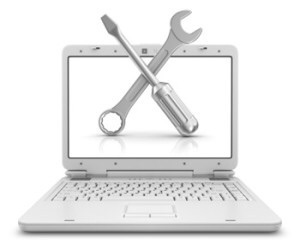

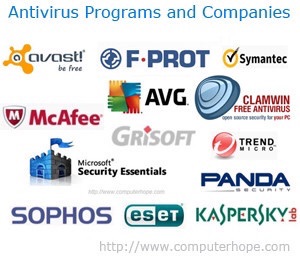
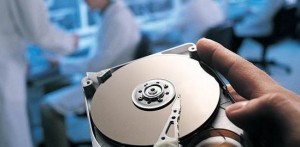

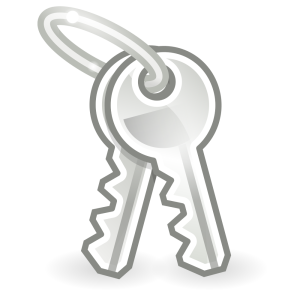
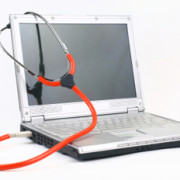



Leave a Reply
Want to join the discussion?Feel free to contribute!